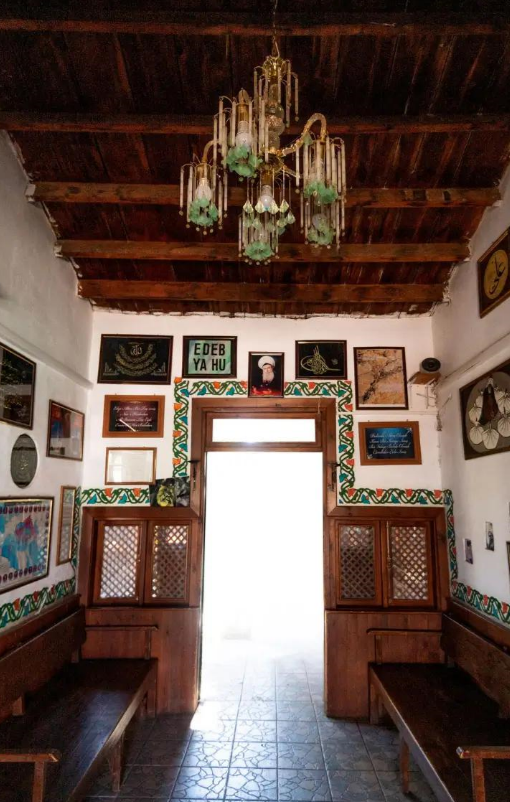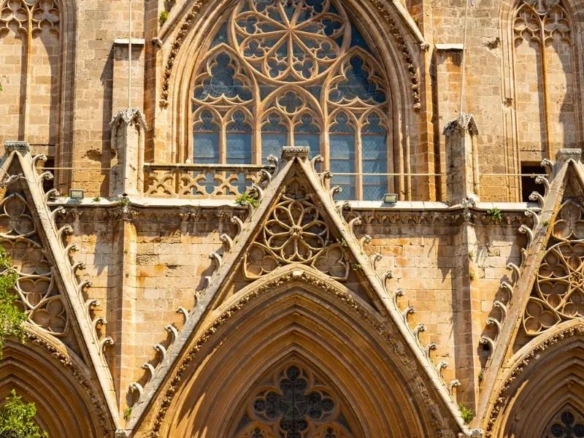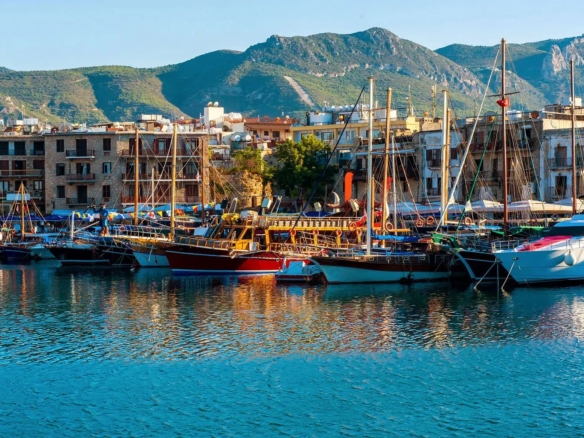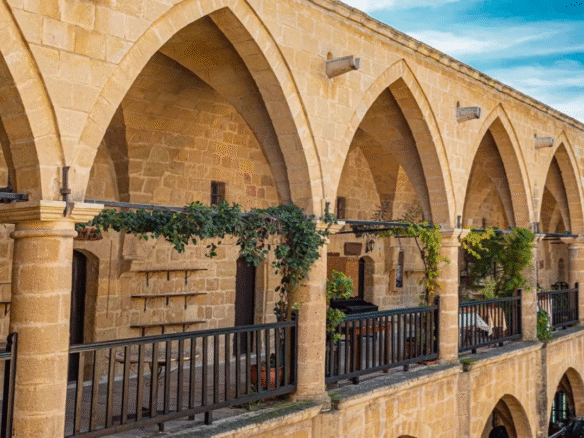Natural Beauties and Agricultural Riches
Lefke stands out as one of the most productive agricultural areas in Cyprus. Its natural beauty and favorable climate have made it a major center for fruit and vegetable cultivation. High temperatures and abundant sunlight are key factors supporting agricultural production. While temperatures are high in the summer, mild winters allow for the cultivation of a variety of agricultural products year-round.
Lefke’s rich soil and water resources are particularly renowned for its citrus groves. In addition to fruits such as oranges, lemons, and tangerines, the region is also known for other crops such as peanuts and olives. This increases Lefke’s agricultural diversity and supports sustainable food production. Cooling winds, combined with irrigation systems, improve crop quality and boost productivity.
The region’s natural spring waters are another factor that significantly increases Lefke’s agricultural production potential. The abundance of these waters not only provides producers with sufficient water but also plays a critical role in plant nutrition. Irrigation needs, especially with rising summer temperatures, become increasingly important. Therefore, Lefke’s natural water resources are an indispensable resource for supporting agricultural activities.
In conclusion, Lefke represents one of the unique regions of Cyprus, with its natural beauty and agricultural riches. These features contribute significantly to the local economy and enhance the region’s tourist appeal.
Festivals and Local Flavors
Lefke is known for its vibrant festivals, reflecting Cyprus’s rich cultural heritage. The annual date festival and strawberry festival are among the key events showcasing the local community’s agricultural production capacity. These festivals promote the region’s agricultural products and offer visitors a unique selection of flavors. Dates and strawberries thrive in Lefke’s fertile soil, and these events celebrate the hard work of local producers.
The date festival represents a tradition that has endured from the past to the present, while the strawberry festival, despite being a younger event, has quickly gained popularity. These festivals focus not only on gastronomy but also on local handicrafts and crafts. Visitors have the opportunity to experience Lefke’s cultural identity more intimately by experiencing handmade products and traditional flavors.
Various workshops and performances held during the festivals allow visitors to experience local culture, while the region’s rich historical heritage attracts attendees. These cultural events in Lefke become a major draw not only for locals but also for tourists. The region benefits from both economic and social gains thanks to these festivals. Local flavors and handcrafted goods reflect Lefke’s cultural and historical richness, while the continuity of these events plays a crucial role in preserving Lefke’s identity.
Historical Heritage and Cultural Riches
Lefke stands out as one of the richest historical regions in Cyprus. Its deep-rooted history dates back to the Roman period, bearing the traces of numerous civilizations. Lefke’s historical heritage reveals both its natural beauty and its contributions to human history. Mosques and other structures from the Ottoman period, in particular, enrich the region’s cultural fabric.
The ancient city of Soli is one of the finest examples of this richness. Roman ruins offer visitors traces of antiquity, while structures unearthed through archaeological excavations shed light on the region’s history. Soli is a center of attraction not only for its historical remains but also for its natural surroundings. Here, visitors can experience the tranquility of being surrounded by history while simultaneously enjoying the magnificent views.
Another important structure is Vouni Palace. This palace dates back to the 4th century BC and once served as the administrative center of the region. Vouni Palace is particularly notable for its architecture and location. Situated on a high hill, this palace offers visitors beautiful views of Cyprus and a rich historical depth. Furthermore, the palace’s ruins offer insights into ancient life, making it a major attraction for history buffs.
Lefke’s historical structures and ruins serve not only as a journey into the past but also as a cultural heritage. This heritage is a valuable asset that must be preserved in modern times and passed on to future generations. The region’s rich history offers visitors unforgettable experiences, making Lefke a destination steeped in Cyprus’s historical and cultural riches.
Where Nature and History Meet: Lefke
Lefke, a town located in the western part of Cyprus, stands out for both its natural beauty and historical richness. Visitors can enjoy strolling through verdant citrus groves, enjoying nature, and immersing themselves in ancient ruins. This unique combination is one of the things that makes Lefke worth exploring.
The region’s natural beauty, especially in summer, offers a dazzling array of colors and vibrant scenery. Gardens lined with citrus trees dazzle visitors, creating a tranquil atmosphere. Orange and lemon trees, in particular, contribute to Lefke’s agricultural value both for their beauty and the fruit they offer. Nature walks among these trees also offer opportunities to learn about the local flora and fauna.
Ancient ruins stand out as elements that shed light on Lefke’s history. Having hosted numerous civilizations throughout history, this region boasts a rich cultural heritage. While the ancient city of Lefke offers visitors unforgettable memories of the past, other historical structures in the region, with their ruins and rich fabric, have become important research and discovery sites. Visitors spend time among these historical ruins, offering a journey into the depths of the past. Combining these two elements, Lefke offers a unique experience for both nature and history enthusiasts.




